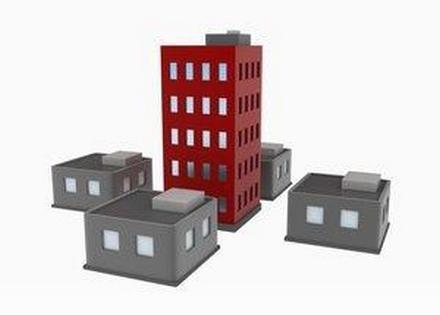Naperville, IL 60563
Sale-Leaseback Transactions in Commercial Real Estate
 Still in the process of recovering from the economic recession, American businesses continue to face a tough credit market that can hinder their ability to expand or stay afloat. Many have turned to sale-leaseback transactions to remedy these issues; commercial real estate investors have been more than willing to oblige. However, there are some important considerations that must be made by both parties before entering into such an agreement.
Still in the process of recovering from the economic recession, American businesses continue to face a tough credit market that can hinder their ability to expand or stay afloat. Many have turned to sale-leaseback transactions to remedy these issues; commercial real estate investors have been more than willing to oblige. However, there are some important considerations that must be made by both parties before entering into such an agreement.
What is a Sale-Leaseback Transaction and How Does it Work?
In essence, sale-leasebacks are arrangements in which a company sells their property to a third party investor and then leases it from the buyer so they can continue to use it for their business. The seller/lessee receives capital gain that can be used to reinvest in the business or pay off debts while the buyer receives ownership of the property with often better profits, stability, and legal options than they might have received through traditional leasing.
Benefits to Sellers/Lessees
Sellers who choose to enter into a sale-leaseback transaction usually experience a number of benefits, particularly those relating to income, taxes, and continuity of business operations. Rent, which may be lower than the current mortgage payment, is typically 100 percent deductible against the company's taxable income. Long-term agreements—typically between 10 and 25 years—ensure business will continue at the same location. And the lessee continues to retain control of how the property is used and maintained.
Benefits to Buyers/Lessors
The main benefits in purchasing a sale-leaseback property rests within the agreement itself. Rent paid by the lessee provides long-term, steady stream income, and because most tenants retain the cost and responsibility for expenses like insurance, taxes, and maintenance, those rent payments go straight to the investor's bottom line. Lessors also have a little more security with sale-leaseback transactions if a tenant can no longer pay rent since they are often able to recover payments for any unfulfilled portion of the contract.
Potential Drawbacks
All commercial real estate transactions come with their own set of risks; sale-leasebacks are no exception. However, if carefully considered and adequately planned for, both lessees and lessors can reduce their overall risk. Some factors to consider include:
- Financial conditions and business prospects of the seller,
- IRS tax regulations and consequences,
- Value of the property, and
- Potential depreciation and/or appreciation of property.
Need Help Structuring Your Naperville Commercial Real Estate Sale or Purchase?
Before entering into a sale-leaseback or traditional commercial real estate transaction, it is important to seek the assistance of an experienced Naperville commercial real estate attorney for guidance. At Lindell & Tessitore, P.C., we offer personalized attention, quality experience, and competent handling of your legal matters. Call us at 630-778-3818 and request your initial consultation today.
Source:
http://www.ccim.com/cire-magazine/articles/real-estate-sale-leasebacks




